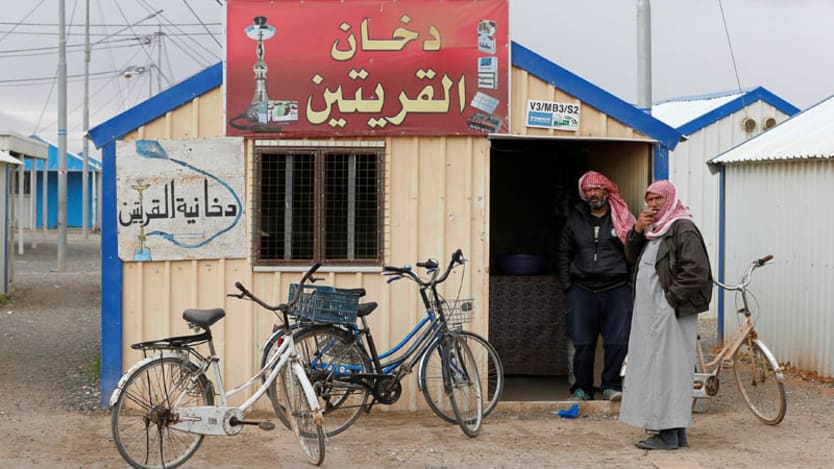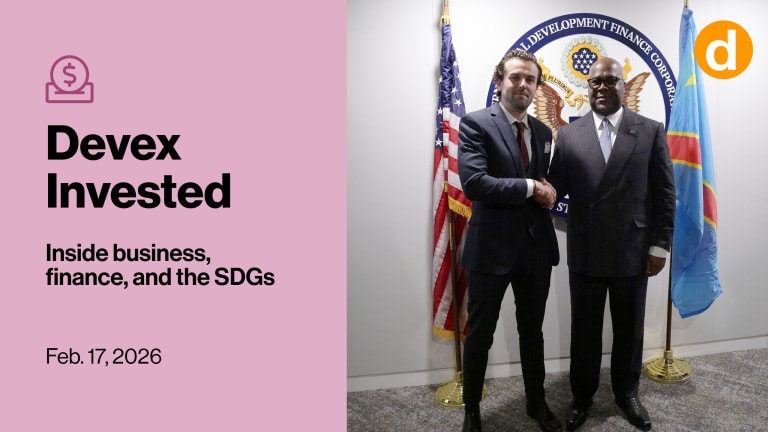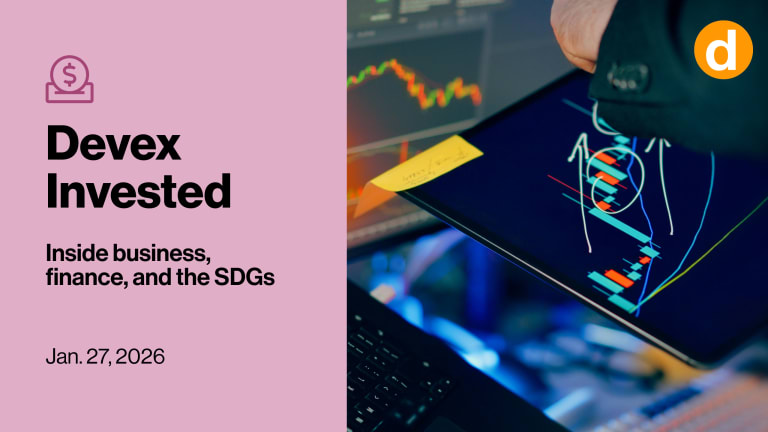
SAN FRANCISCO — Most investors don’t see refugees as bankable or investable, but that’s something the Refugee Investment Network wants to change.
Since launching at the Social Capital Markets, or SOCAP, conference in San Francisco, California, in October 2018, RIN has sought to build proof points and deal flow to back up their argument that refugees are good investment partners. Due in part to its efforts, this is starting to happen.
A record 68.5 million people are forcibly displaced, both within their countries or across borders, and those numbers are likely to rise. The team behind RIN said their goal is to change the narrative around refugees, from a burden on society to an economic opportunity, and to drive more impact investment and blended finance deals toward long-term solutions to global forced migration.
“We see this as an ‘all capital on deck’ emerging field,” said John Kluge, founder and managing director at RIN.
“‘How can you justify making money on the backs of refugees?’ There is that point of view that is still out there.”
— Tim Docking, managing director, Refugee Investment NetworkTogether with Tim Docking, who previously helped start the Millennium Challenge Corporation and is now serving as the other managing director of RIN, Kluge is engaging a range of stakeholders, from impact investors to development finance institutions.
Bridging divides
The leaders behind the new investment network are not alone in trying to bridge these worlds. For example, at the World Economic Forum annual meetings in Davos, Switzerland, United Nations High Commissioner for Refugees Filippo Grandi hosted a breakfast conversation on refugee inclusion, where he talked about how smart investments could yield benefits for businesses and refugees alike — while also contributing to the development of host nations.
Traditionally, the worlds of investment and humanitarian assistance have been divided, but they are starting to come together, although Docking says progress is happening more quickly on the humanitarian side than the investor side.
RIN is also working to connect entrepreneurs and investors in this space, Kluge said. For example, the impact investing and blended finance collaborative is providing entrepreneurs with mentorship, advice, and coaching on strategies such as investor relations and board structuring.
RIN is “walking the talk,” said Natasha Freidus, the founder of NeedsList, a platform that matches nonprofit needs with corporate resources in crisis response.
She said she has seen a lot of rhetoric but very little action when it comes to investing with a refugee lens. For example, when former U.S. President Barack Obama issued a call to action for U.S. companies to increase their engagement in the global refugee crisis, companies made commitments. But she said she has not seen the kind of impact she expected.
A refugee lens
When RIN launched at SOCAP, a range of investors took the stage to share details on over $200 million in new investment commitments.
They included John Morris, founding partner and CEO of 17 Asset Management, which provides its clients with investment opportunities based on the 17 Sustainable Development Goals. He said he would start a fund to invest in Jordan, with 30 percent of investments positively impacting refugees using criteria defined by RIN.
RIN connected 17 Asset Management with Small Enterprise Assistance Funds, a private equity and venture capital firm committed to social and financial returns in emerging markets. On Friday, 17 Asset Management and Small Enterprise Assistance Funds announced they are partnering to explore how to bring long term capital to Jordan's entrepreneurs. The announcement followed a summit in London where U.K. Prime Minister Theresa May commended the country for taking on a huge share of refugees from Syria, announced a number of significant commitments from the U.K. Department for International Development, and called on the private sector to invest in the country’s future.
The scale of the problem has motivated Kluge and Docking to “get things done as fast as possible,” Morris told Devex. He explained that while 17 Asset Management will raise a wide range of funds tied to the SDGs, RIN convinced him to prioritize this cause. Kluge and Docking have become “a lightning rod for all people interested in not just investment, but the development of a range of initiatives that benefit — and recognize the value of — refugees and migrants,” he said.
RIN has developed what it calls a “refugee lens.” It explains this methodology in a report for investors called “Paradigm Shift.” The report explains what does and does not qualify as a refugee investment.
For example, a refugee-led enterprise that is based outside a zone with a high concentration of refugees and fails to positively impact refugees would not qualify.
In developing this refugee lens, Kluge and Docking looked to gender lens investing as a model. For example, one of the lessons from gender lens investing is framing the goal as a benefit to society, rather than a benefit to a select group. And Kluge and Docking are already applying those lessons in pitches to investors. They talk about the value of refugee investments, not only for refugees and host communities, but also for society more broadly.
“There have been comments at almost every major convening over the past year talking about need for investors to consider large scale economic shocks due to political instability or conflicts or other issues,” Kluge said shortly after returning from Abu Dhabi, where forced migration issues where a major topic of conversation at the Milken Institute’s MENA conference. “This is one of those but it doesn’t have to be that way.”
Clash of cultures
Speaking with Devex at the SOCAP conference, Docking anticipated that some investors might not be comfortable with the idea of making a profit on deals tied to the humanitarian sector.
“There is a clash of cultures between the development humanitarian group and private capital,” he said. “We may hear in these next couple days people who come in and say ‘How can you justify making money on the backs of refugees?’ There is that point of view that is still out there.”
More reading:
► Rethinking inclusion in Australian aid projects
► Q&A: A 'twin-track' approach to disability-inclusive disaster preparedness
But he said that has not proven to be the top challenge. Instead, most of their conversations with interested parties revolve around the question of exactly how to make investments that benefit refugees and the communities that host them. One example is the Ascend Venture Fund, which billionaire philanthropist Frank Giustra started to invest in Greek businesses that are committed to hiring refugees.
But no matter how appealing the pitch, investments in these contexts may not always yield the projected financial returns, so there remains a role for philanthropy, Freidus noted.
Since SOCAP, RIN has operated as an initiative of the Global Development Incubator, which supports organizations that have the potential to scale their model for social change.
Kluge acknowledged the challenge of being an intermediary, saying that “intermediaries get a bad rap in typical commercial markets,” but he said he sees a real need for this “coordinating, facilitating, quarterbacking role.”
Search for articles
Most Read
- 1
- 2
- 3
- 4
- 5








